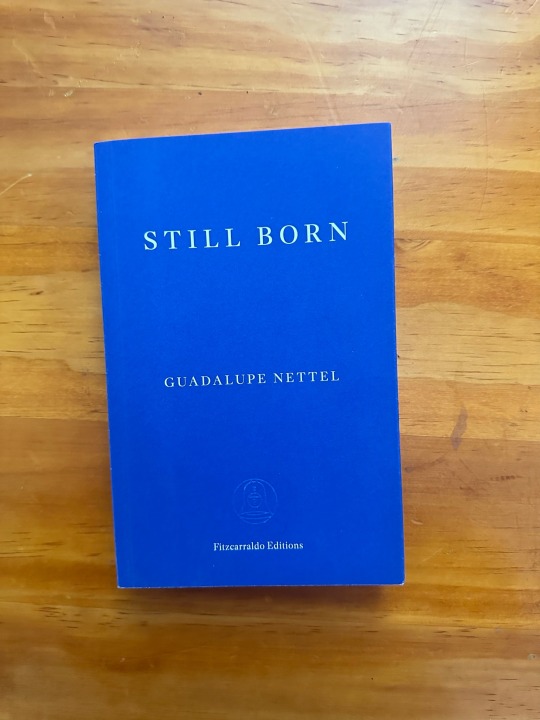#International Booker Prize
Text
Tobias Menzies reads from 'Mater 2-10' | The Booker Prize
youtube
7 notes
·
View notes
Text
Farewell, now you will no longer be you, nor I, I. As if to say, This ebbing night will rise now in such a day that will be new.
Geetanjali Shree in, Tomb of Sand.
#quotes#books#prose#book quotes#books and libraries#bookblr#booksbooksbooks#lit#book rec#literature#indian literature#geetanjali shree#tomb of sand#international booker prize#:)
12 notes
·
View notes
Text
Leuchtende Prosa: Jenny Erpenbeck gewinnt International Booker Prize
Erstmals in der Geschichte des International Booker Prize gewinnt mit Jenny Erpenbeck eine deutschsprachige Autorin den renommierten Booker Prize für internationale Literatur.
Erstmals in der Geschichte des International Booker Prize gewinnt eine deutschsprachige Autorin den renommierten Booker Prize für internationale Literatur. Die Jury unter dem Vorsitz der kanadischen Schriftstellerin Eleanor Wachtel zeichnet die englische Übersetzung von Erpenbecks letztem Roman »Kairos« aus. Die Hälfte des mit 50.000 Euro dotierten Preises geht an den Übersetzer Michael…

View On WordPress
#David Diop#David Grossman#Geetanjali Shree#Georgi Gospodinov#Hang Kang#Hwang Sok-yong#IA Genberg#Ilko-Sascha Kowalczuk#International Booker Prize#Itamar Vieira Junior#Jenny Erpenbeck#Jente Posthuma#Jokha Alharthi#Lucas Rijneveld#Michael Hofmann#Olga Tokarczuk#Selva Almada
2 notes
·
View notes
Text

Book 12 of 2023: Still Born by Guadalupe Nettel (translated by Rosalind Harvey) turns out I just love reading books about the ambivalence of motherhood and this covered such an amazing range of emotions. I think this makes a perfect companion to the Involuntary Trilogy by Ariana Harwicz
#translated lit#translated literature#women in translation#translatedliterature#translatedlit#read in 2023#ibp2023#international booker prize
4 notes
·
View notes
Text
analysis
Bora Chung’s short story, The Head, from Cursed Bunny
- translated by Anton Hur
synopsis : a head constructed out of a woman’s feces rises out of her toilet bowl and begins to call her mother. disturbed and disgusted, a series of events lead the woman to quit her job and enter a loveless marriage and give birth to a daughter. however, she is constantly plagued by the head and so attempts to get rid of it. on after the second failed attempt to kill it, the head eventually stops appearing. the woman grows old, cooking and cleaning for her husband and daughter. as her daughter grows, the woman begins to recognise her ageing body. then one night out of the blue, the head rises out of the toilet as the woman’s younger self and demands the woman to give her her clothes. the head (now her younger self) enacts revenge on the woman for her mistreatment and tips her into the toilet.
-------
when I first read The Head I was struck by how surreal it was. it was nothing like I've ever read before- it was bonkers- yet bonkers isn’t quite the word for it. As crazy as a head made of feces calling you “Mother.” got, the woman’s suppressed dissatisfaction with her life, her relationship with her daughter and husband, her disquietude and disgust of the head all seemed rather rational.
as I was reading through the short story, I was desperately trying to work out what exactly were ‘the bigger meaning’ behind the story. at first it seemed to me to not have a large cohesive ‘bigger meaning’ but rather smaller fragments of it, perhaps its aim was to give a fragmented representation of society- for instance, a pressure to marry, growing old and living with regrets.
arguably, The Head could be interpreted as a showcase of class divide; the head representing the marginalised members of society, and the woman representing the upper class, ending with a social upheaval as the woman is flushed down the toilet, serving as a kind of warning of the transience of power and social capital. in many ways The Head reminded me of Mary Shelley’s Frankenstein, which could also be interpreted as a novel in support of the French Revolution, repeatedly showcasing the idea of ‘if you treat people well, they will behave well, if you treat them badly, they will undoubtedly rebel’. This idea could also be seen in The Head, when the woman demands gratitude from the head at the end of the story, the head responds with ‘Gratitude. What gratitude should I have for you? [...] What have you given me besides your feces and trash?’. the woman's mistreatment and rejection of her responsibility towards the head accumulated the head’s resentment and lead to her demise.
however, I am more so convinced by the reading that The Head was an exploration of the oppression of women and its effects. I am not sure if I am reaching but in some ways I felt that the head was likened to an aborted fetus. It is an unwanted child and the woman did not purposely create it or want it either and if you will, it’s down the toilet. Either way, never mind wether the head is a symbol for an aborted fetus, it is ultimately an unwanted child, a child born out of wedlock which is already a cause of social exclusion be it aborted or not. The head’s identity as a child born out of wedlock- or even as child born out of feces- embodies the unconventional, shunned route leading away from the rigid obligations of marriage, childbirth and motherhood. the woman’s disgust of the head could be reflective of society’s disgust of the unconventional, leading her to quit her job and enter the average prescribed road which she finds no joy in. deep into her middle age, the woman ‘gazed upon the meaningless progression of scenes’ on TV, attempting to distract herself from ‘am odd little space between her heart.’ Her passive action of ‘gazed’ and watching TV in itself suggests a lack of involvement and vigour in her own life, and perhaps a sense of yearning for something more in the form of story-telling to fill the ‘odd little space’.
at the end of the story where the head returns with it’s body complete, it is described luxuriously with all the beauty of youth and the narrative voice begins to refer to it as ‘her young self’. this binds the woman and the head together as one, suggesting the head embodies the woman’s full potential that she had at her youth and before she married and entered her empty, emotionless life. her young self takes over and removes the old self of its meaningless life, and continues as the woman. The young self’s unconventional birth suggests a trajectory where the young self takes an new path as unconventional as her birth. Here, the use of doppelgängers could suggest that the head/the young self is the woman’s unfulfilled potential and desires that had been limited by her and therefore society’s disgust of the head/the young self.
in recent years, anti-feminism has drawn the support of many young men in S.Korea who believe that they have suffered the worst of gender discrimination. an article published by the guardian, reported that this was possibly due to men feeling threatened by women’s advancement in the workplace, and especially because all Korean men must serve mandatory military service before the age of 30, which can hinder their careers. this same service is not expected of women, which, sparks debate which I won’t be discussing here. roughly speaking, this creates a situation where sentiments towards advances in women’s rights are resented and traditional roles for women are pushed. on top to this, S.Korea’s birth rate is decline. undoubtedly there must be a growing pressure on Korean women to fulfil their supposed ‘duties’ of childbirth. as many of us know, having children is challenging, many married women upon having children often retreat from work, and assume housewifely identities which can result in a reliance on their husbands.
this route is seen here, in The Head. the woman leaves her job due to her disgust of the head and enters a loveless marriage, which she and her husband spend in ‘emotional detachment’ and does not seem to view any aspect of it as fulfilling. and despite having a ‘real’ daughter of her own the woman is still the more preoccupied with the head (and therefore what it represents). once the head disappears, she becomes all the more aware of the meaninglessness of her life as a housewife and her age.
Chung seems to be critiquing this unfulfilling conventional path that seems to be ever more expected of women, exploring the emotional effects of this pressure through the characters of the woman and the head.
#thank you for coming to my ted talk lmao#it was so fun to right this because I haven't found much analysis on bora chung's thehead on the internet#it just feels really good to be original for once#like all those old classical texts have been studied thousand times over#idk how much you can say more about them#but anyway#also im not particularly familiar with the societal atmosphere going around in Korea so please correct me if I am wrong#I will definitely correct things if I am#thank you so much!#bora chung#cursed bunny#Booker Prize#international booker prize#the head#literary#literature#literary analysis
21 notes
·
View notes
Text

"Time Shelter" escrito pelo autor búlgaro Georgi Gospodinov e traduzido por Angela Rodel foi o vencedor da edição 2023 do International Booker Prize, que tem como objetivo incentivar a publicação e a leitura de mais ficção internacional, além de promover e reconhecer o trabalho vital dos tradutores.
2 notes
·
View notes
Text


look what I got my hands on!
#I'll probably just gift this copy#tomb of sand#books#bookblr#international booker prize#geetanjali shree#reading#bookish#booksbooksbooks#bookshelf#tbr#reading list#academia aesthetic
9 notes
·
View notes
Text
Jenny Erpenbeck gana el International Booker Prize
Kairós de la escritora alemana Jenny Erpenbeck ha obtenido el prestigioso International Booker Prize, dotado con 64000 dólares.

El libro elegido entre más de 149 propuestas narra la relación tóxica de Katharina, de 19 años, y Hans, de 50, en la Berlín Oriental. Enhorabuena podemos leerla en español gracias a Anagrama quien la publicó a finales del 2023.

1 note
·
View note
Text

Geetanjali Shree in, Tomb of Sand.
#prose#quotes#book quotes#books#books and libraries#bookblr#lit#booksbooksbooks#book rec#literature#indian literature#asian literature#geetanjali shree#tomb of sand#international booker prize#on daughters#on women#writing#words
16 notes
·
View notes
Text
Jenny Erpenbeck für International Booker Prize nominiert
Jenny Erpenbeck hat es mit ihrem Übersetzer Michael Hofmann auf die Shortlist des International Booker Prize geschafft. Die Berliner Autorin ist in der englischsprachigen Welt sehr erfolgreich, manche sehen in ihr bereits die kommende Nobelpreisträgerin.
Die Autorin Jenny Erpenbeck hat es mit ihrem englischen Übersetzer Michael Hofmann auf die Shortlist für den International Booker Prize geschafft. Die Berlinerin ist in der englischsprachigen Welt äußerst erfolgreich, manche sehen in ihr bereits eine kommende Nobelpreisträgerin. Mit dem renommierten Preis wird der beste Roman aus dem nicht englischsprachigen Ausland ausgezeichnet.
Continue…

View On WordPress
#Alfred Döblin#Annie McDermott#Barbara Mesquita#Christian Hansen#David Diop#David Grossman#Durs Grünbein#Ernst Jünger#featured#Franz Kafka#Geetanjali Shree#Georgi Gospodinov#Hang Kang#Hans Fallada#Herta Müller#Hwang Sok-yong#IA Genberg#International Booker Prize#Irmgard Keun#Itamar Vieira Junior#Jenny Erpenbeck#Jente Posthuma#Johnny Lorenz#Jokha Alharthi#Joseph Roth#Kira Joseffson#Lucas Rijneveld#Michael Hofmann#Olga Tokarczuk#Sarah Timmer Harvey
0 notes
Text
The International Booker Prize Shortlist 2024 Announced
Find out the six books shortlisted for the International Booker Prize award for 2024!
The six novels for the International Booker Prize shortlist for this year have been announced.
This year’s shortlist includes six books from six different countries and six different languages. They are from three different continents, highlighting human experiences from all over the world.
“Novels carry us to places where we might never set foot and connect us with new sensations and…

View On WordPress
#2024#Blog#blogging#book#book review#books#books to read#Fiction#International Booker Prize#news#novel#reading#shortlist#writing
0 notes
Text
The Perils of Nostalgia
Time ShelterBy Georgi Gospodinov304 pp. W&N. $27.
“The Physics of Sorrow” put Georgi Gospodinov on my radar. It quickly became one of my favorite books and made Gospodinov one of my favorite authors.
But as much as I loved “The Physics of Sorrow,” I love “Time Shelter” nearly as much, dealing as it does with time and memory … two of my favorite topics in all of literature (fortunately for me,…

View On WordPress
1 note
·
View note
